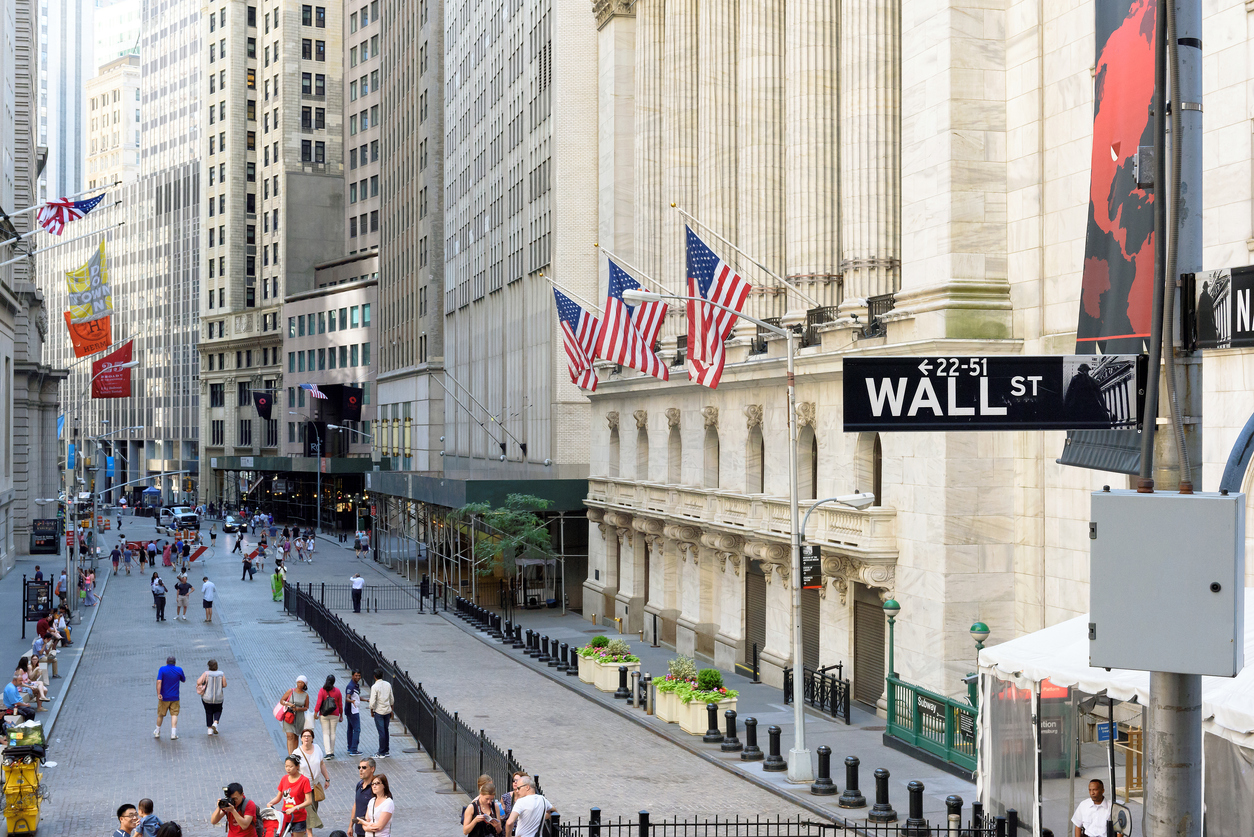Wall Street on Edge: Dow Surges as Bank Profits Boom but China Trade War Threatens Meltdown
Bank of America and Morgan Stanley shock markets with blockbuster earnings as Trump’s tariff threats and gold’s $4,200 surge send investors scrambling.
The U.S. stock market roared higher Wednesday, fueled by explosive bank earnings and a wave of investor relief — even as a fresh U.S.–China trade war scare loomed over Wall Street.
The Dow Jones Industrial Average jumped 0.3%, the S&P 500 gained 0.7%, and the Nasdaq surged 1%, powered by AI stocks and financial heavyweights defying expectations. Bank of America (BAC) and Morgan Stanley (MS) both reported stronger-than-expected results, reigniting optimism after weeks of volatility.
Investors are now asking the billion-dollar question: Is this a real rebound, or just the calm before the next storm?
Banking Titans Defy Wall Street’s Doubts
The financial sector led the charge Wednesday, with Morgan Stanley shares leaping over 6%, their biggest single-day gain since April, and Bank of America climbing more than 4%.
Both firms crushed profit estimates thanks to surging investment banking revenue, strong equity trading desks, and resilient loan demand. Analysts said the results suggest U.S. consumer and corporate balance sheets remain solid despite higher interest rates.
“It appears as if the banks have hit the ball out of the park,” said CFRA Research Chief Strategist Sam Stovall. “That’s an indication the economy remains strong — and with the Fed expected to cut rates again this month, investors are feeling vindicated.”
New Angle: The Political Risk No One’s Pricing In
While markets rallied, Washington’s trade brinkmanship is rattling global investors behind the scenes.
President Donald Trump threatened a cooking oil embargo against China in retaliation for Beijing halting soybean imports — a symbolic but potentially costly move for both economies. The White House is also exploring “price floors” across industries to prevent what Treasury Secretary Scott Bessent called “Chinese market manipulation.”
Trade officials told CNBC that tariffs of up to 100% on Chinese imports could go live by November 1, depending on Beijing’s next move — a scenario analysts warn could trigger a new phase of global supply-chain disruption.
“We won’t negotiate because the stock market is going down,” Bessent said. “We will negotiate because it’s the right thing economically for the U.S.”
This hardline rhetoric is colliding with investor hopes for diplomacy. JPMorgan analysts predict a “fragile truce” may be reached when Trump and Xi meet at the APEC summit in South Korea later this month — but warned that any collapse in talks could send markets reeling.
Tech Stocks Rally on AI Optimism
In sharp contrast, tech investors turned euphoric after a BlackRock-led consortium announced a $40 billion takeover of a massive private data-center operator, a deal highlighting the AI infrastructure boom.
Nvidia, AMD, and Intel climbed more than 1% each as traders bet on another wave of AI-driven demand. Analysts say the deal signals “institutional capital pouring into AI at an unprecedented pace.”
Meanwhile, BlackRock shares rose 2% after Evercore ISI hiked its price target to $1,300, citing $171 billion in new inflows and record performance fees — proof that the world’s largest asset manager is thriving in the AI era.
Economic Shock Absorbers: Gold and Bonds Surge
Gold continued its meteoric rise, breaking above $4,200 an ounce — up nearly 60% since January. Investors are treating it as both an inflation hedge and crisis insurance as global tensions simmer.
At the same time, Treasury yields retreated, with the 10-year note slipping to 4.01%, its lowest in months. Lower yields eased pressure on tech valuations and gave Wall Street a much-needed breather.
FAQ: Why Is the Stock Market Rising Despite Trade War Threats?
Investors often ask: “If trade tensions are rising, why are stocks climbing?”
In plain English — markets are forward-looking. Traders are betting that strong corporate profits and a potential Federal Reserve rate cut will offset short-term political drama. In other words, Wall Street is pricing in future growth, not just today’s headlines.
That’s why even amid geopolitical shocks, rising earnings per share (EPS) and AI sector growth can drive indexes higher.
Data Snapshot (as of 12:06 p.m. ET)
| Index | Level | Change | Trend |
|---|---|---|---|
| Dow Jones Industrial Average | 39,851 | ▲ +0.3% | Up |
| S&P 500 | 5,237 | ▲ +0.7% | Up |
| Nasdaq Composite | 17,876 | ▲ +1.0% | Up |
| 10-Year Treasury Yield | 4.01% | ▼ -0.05% | Down |
| Gold Futures | $4,208/oz | ▲ +1.2% | Up |
What’s Next: United Airlines, Tesla, and the Fed
Next up, United Airlines (UAL) will report after the close, followed by Tesla later this week. Markets are bracing for guidance on consumer spending, supply-chain resilience, and energy costs — all key indicators of whether the October rally can hold.
The Bottom Line
Wall Street may be celebrating big bank profits, but the mood is far from calm. The same forces pushing stocks higher — AI hype, inflation hedging, and rate-cut optimism — could turn volatile if trade hostilities with China intensify.
For now, investors are walking a tightrope between profit euphoria and geopolitical fear — a mix that could make this one of the most unpredictable quarters of 2025.














